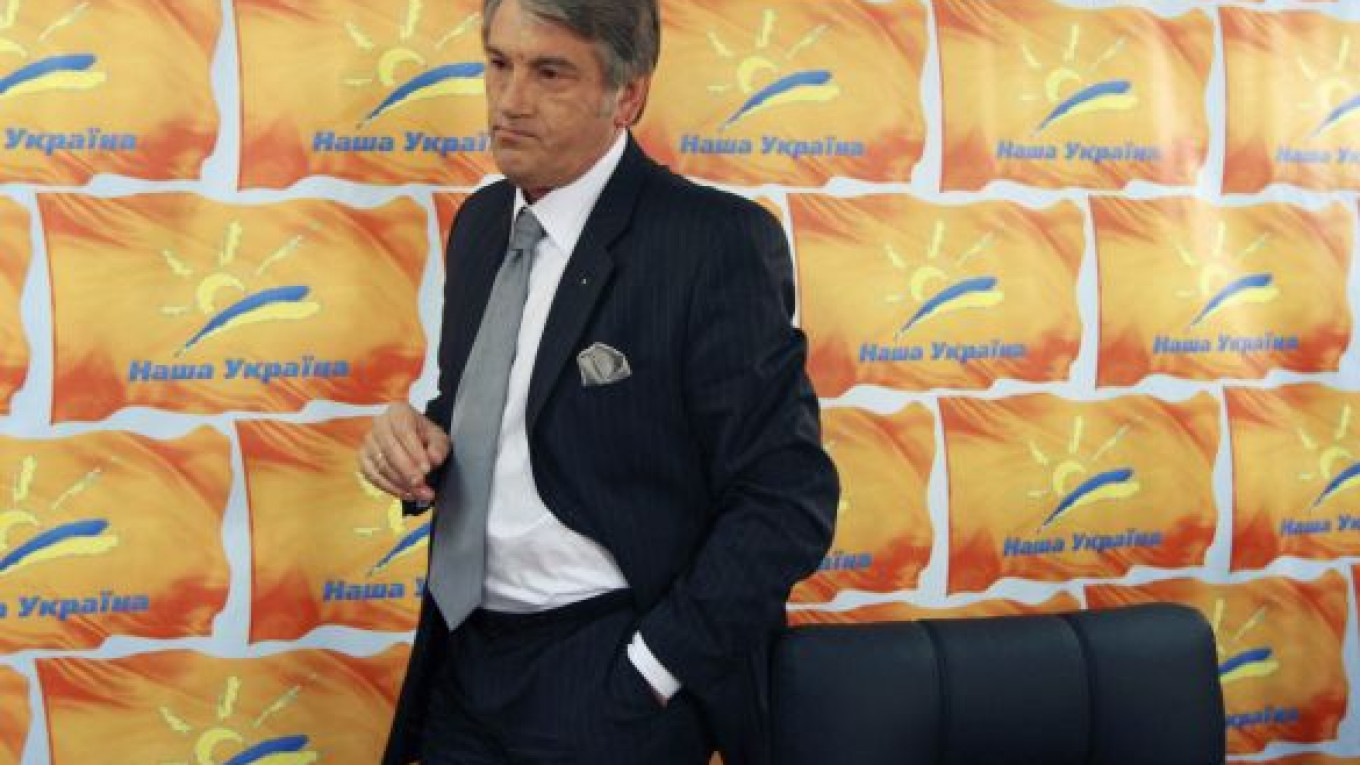Ukraine’s $40 billion budget-saving deal with Russia may push yields on the former Soviet state’s debt below 10 percent for the first time in more than two years, rivaling borrowing costs in Greece, economists at Nomura Holdings and UniCredit said.
Russia on April 21 agreed to charge Ukraine 30 percent less for its natural gas in an accord that will help reduce the bailout-reliant country’s public deficit to 6 percent this year fr om 8.8 percent in 2009. The deal, which cements Ukraine’s ties with its neighbor to the east, enables Kiev to resume its International Monetary Fund program and reassure investors that its finances are intact.
“Domestic yields should gradually fall to the low double digits and may even go into the high single digits now that the budget deficit will be much smaller,” Ivan Tchakarov, an economist at Nomura in London, said by telephone. Yields on two-year debt may be below 10 percent by August, according to Dmitry Gourov, an economist at UniCredit in Vienna.
Ukraine’s efforts to resurrect the economy from last year’s 15 percent contraction are starting to pay off, and debt markets are taking note. Credit default swaps on five-year debt have more than halved this year, while the yield on the country’s 2016 dollar bond shed about 5 percentage points in the period. The economy grew an annual 5 percent last quarter, the government estimates, helping the hryvna gain 11 percent against the dollar since a low at the beginning of September. ?
Investors demanded 14 percent to hold 20 million hryvna ($2.53 million) in notes due 2012, at an April 21 auction. That compares with an average yield of 25.55 percent at a Jan. 20 auction for the same maturity debt.
Russia’s support is “definitely constructive to Ukrainian assets, as risk sentiment continues to improve,” Luis Costa, an emerging market strategist at Citigroup, said in a note to clients.
On Friday, the Ukrainian government agreed on a 2010 draft budget, which could unlock $12 billion worth of credit from the International Monetary Fund, and was sending it to parliament for approval.
"After some minor clarifications and additions, the law on the 2010 budget will now be passed to parliament," Prime Minister Mykola Azarov said, according to a statement issued by the Cabinet of ministers.
The Ukrainian government hopes that a budget committing it to tighter social spending will trigger a new $12 billion credit program from the IMF to replace a previous package suspended late last year.
The government had been waiting for a new lower price for gas supplies to nail down the details of key figures in the budget. No precise figures were given in the government statement, but the government has said it was aiming for a budget deficit of 6 percent of gross domestic product.
Azarov, in comments to the Cabinet, said the government wanted parliament, which will consider the budget next week, to pass a law setting a lim it on state pension payments and imposing a tax on personal luxury cars, yachts, helicopters and private planes.
(Bloomberg, Reuters)
A Message from The Moscow Times:
Dear readers,
We are facing unprecedented challenges. Russia's Prosecutor General's Office has designated The Moscow Times as an "undesirable" organization, criminalizing our work and putting our staff at risk of prosecution. This follows our earlier unjust labeling as a "foreign agent."
These actions are direct attempts to silence independent journalism in Russia. The authorities claim our work "discredits the decisions of the Russian leadership." We see things differently: we strive to provide accurate, unbiased reporting on Russia.
We, the journalists of The Moscow Times, refuse to be silenced. But to continue our work, we need your help.
Your support, no matter how small, makes a world of difference. If you can, please support us monthly starting from just $2. It's quick to set up, and every contribution makes a significant impact.
By supporting The Moscow Times, you're defending open, independent journalism in the face of repression. Thank you for standing with us.
Remind me later.


